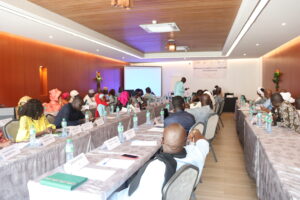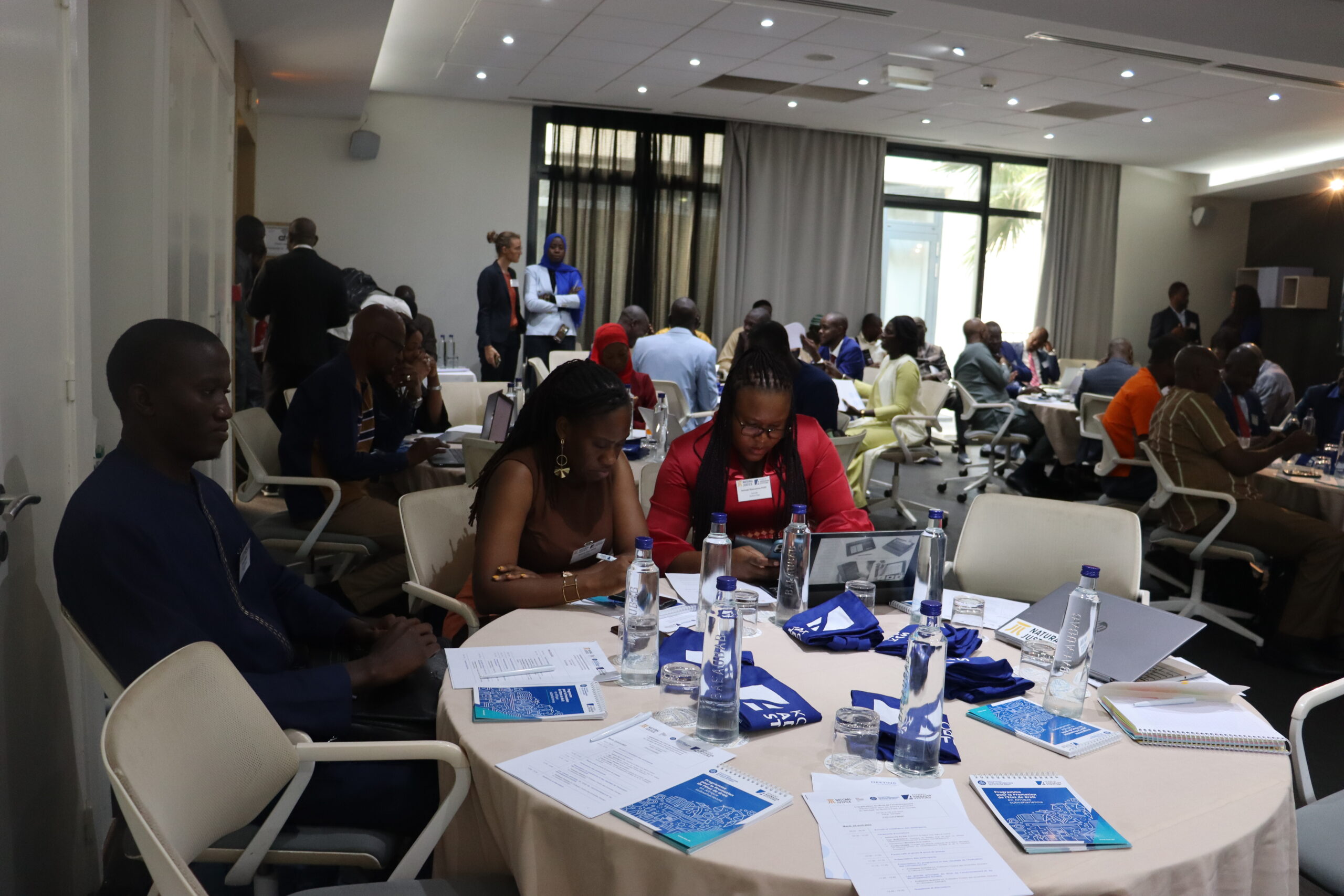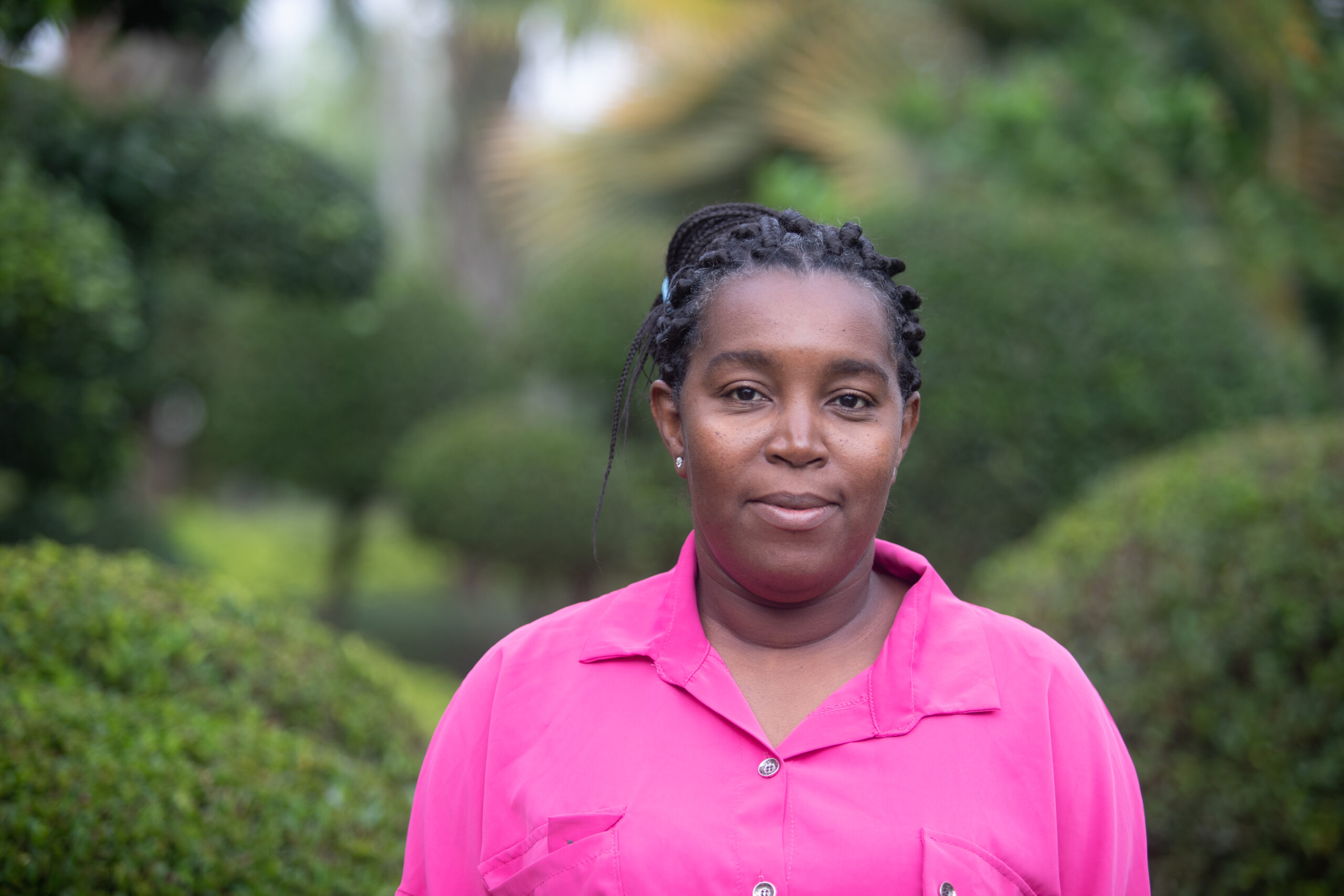Post
Network Member Interview: Sokhna Dié Ka Dia, Natural Justice
In this interview, Sokhna Dié Ka Dia shares her journey and what inspires her, along with the important work Natural Justice does in the field of land and environmental justice. Learn more about Natural Justice’s work here.
What experience or individual inspired you to join the fight for land and environmental justice?
 Workshop on the draft environmental code with members of parliament (Photo Credit: Natural Justice)
Workshop on the draft environmental code with members of parliament (Photo Credit: Natural Justice)
I always had a passion for law. As soon as I graduated from high school, I was [already] in the law department of my university, and at first, my goal was to become an advocate lawyer. In university, I met a professor who was engaged in environmental law. This professor helped me get my first internship at the International Union for Conservation (IUCN) and that was very useful for my future career. Another inspirational experience was when I was working around natural resource management, and that gave me a major source of knowledge – managing environmental resources is a very important issue in developing countries.
When I finished my master’s degree, my first job was in an environmental assessment firm in Senegal. That helped me have a look at the big picture of how the extractive industry impacts communities. And all of this pushed me to say I am passionate about environmental law. During this time, I also met a very strong movement of women who were really engaged to defend the environment in Senegal, particularly in managing natural resources.
Lastly, I worked with a local NGO who focused on helping communities, protecting their biodiversity and ecosystems, and setting up their livelihoods. This work, combined with the LERPDES (Laboratoire d’Etudes et de Recherche en Politique et Droit de l’Environnement et de la Santé), enabled me to question environmental legislation and public policy, and that helped me paint a big picture of how it’s going in the country. I saw that supporting communities through legal empowerment is the best way to bring about systemic transformation involving the state, private actors and citizens.
Was there a turning point or particular moment in your life that shaped you or had a lasting impact on your journey?
 Training of judicial actors from Senegal, Burkina Faso and Guinea on the application of environmental law (Photo Credit: Natural Justice)
Training of judicial actors from Senegal, Burkina Faso and Guinea on the application of environmental law (Photo Credit: Natural Justice)Some events or interactions really make you very proud. These were high points of my involvement in supporting communities and their decision-making. The interactions I have had with communities, especially with women, showed me they are really the ones most dedicated to rise up to the environmental challenge, despite the daily difficulties.
A particular experience with women had a lasting impact on my journey. Waste management is a very big challenge in Senegal, and in Senegalese culture, women play a big role in managing waste at home and in the cities. The environmental issues here are almost always linked with health issues.
“I wanted to be part of a powerful community of women, and I really saw that even if they face so many challenges, they are very determined to protect and support the environment and advocate for a healthy and sustainable environment. This influenced my choice to stay with communities and work with them.”
The women I met were working on making waste management easy for both the communities and the municipal government. Then, we submitted a project to the European Union delegation, and they were able to provide the financial support we needed to implement a new system. We saw that the municipality didn’t have the human resources, financial capacity, or logistics know-how, so we organized the community and helped them to have all the logistics they needed. After that, we had the municipality manage some areas and see how they can be used for agriculture. At the end of the project, the communities were so happy. An immediate effect could be felt, especially during the rainy season. During the rainy months, people were always sick because of unhygienic water and poor sanitation. At the end of the project, we were at the hospital, and we saw the hospitalization percentage drop. The women made the project very strong.
How have you been able to bring community voices and solutions into global and regional advocacy spaces? How have you made those spaces relevant to communities?
We have to work in the local circles and see how you can link them to the regional, sub-regional, and global levels. As Natural Justice is part of the National Committee of Climate Change, I was part of the Senegalese delegation to COP. That meant I had access to the room. I was in the group discussion around the G77+ China and every morning, we had meetings to prepare and see where we were around gender, adaptation, agriculture, Loss and Damage, and all other points in the agenda. I was focused on loss and damage issues. As I was part of the delegation, this gave me the opportunity to lobby with other delegates and push them to think about how we can integrate human rights in the discussion going on at COP.
“If you are part of a delegation like this, it gives you access to last minute information, and you can be the bridge between communities or civil society who work in support of communities. You can give timely updates and information from this and hopefully, some good results.”
That also gave us the opportunity to set up a panel around one topic. Last year, we were focused on gender and climate change issues. We had a panel in the Senegalese pavilion; all the big women’s organizations like FemNET and the Gender Constituency were in the panel, and that was a critical moment for advocacy and lobbying. It’s really helpful to have events like this.
My role as a civil society member is to have a joint agenda or action when we go to COP. We need to have a joint agenda on how we can advocate together, whether we are in the Global South or Global North. For movement building, it’s really valuable to have a movie or documentary to share with communities when they are in this space. The work must be done before we come to COP.
This work can be challenging and difficult. What inspires you and helps you keep going?
First of all, we all agree that it is very challenging to do this work. But I come from a place of passion for this type of work, and that’s the most important thing for me.
When I think of the impact or change I’m making, or when I’m contributing to changing the lives of communities, it is an added motivation for me too.
Sometimes we have an impact on legislation or global decisions – like the role civil society played in the UN’s recognition of the right to a healthy and sustainable environment. Some of this is inspiring and this helps us say “Okay, even though there are challenges, it is an improvement in supporting communities on the ground.”
“Lastly, when I wake up in the morning and see my kids at home, I’m asking myself: “What kind of environment, what kind of world, do we leave for our children?” When I’m thinking about the future generation, that’s a big motivation for doing my work.”
—

